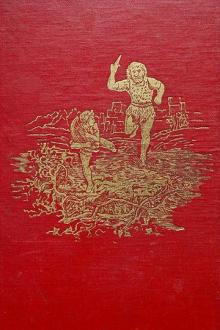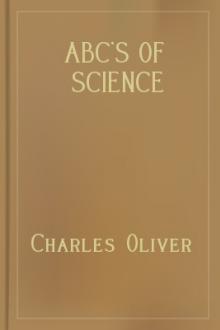The Red Fairy Book by Andrew Lang (e novels for free .txt) 📖

- Author: Andrew Lang
- Performer: -
Book online «The Red Fairy Book by Andrew Lang (e novels for free .txt) 📖». Author Andrew Lang
`Give me your left front paw, my little Fox, if you really wish to
learn how it’s done.’
The Fox did as he was told, and the Musician tied his front paw
to the end of one of the branches.
`Now, my friend,’ he said, `give me your right paw.’
This he bound to the other branch, and having carefully seen
that his knots were all secure, he stepped off the ends of the branches,
and they sprang back, leaving the poor Fox suspended in mid-air.
`Just you wait where you are till I return,’ said the Musician,
and he went on his way again.
Once more he said to himself:
`Time hangs heavily on my hands when I’m all alone in the
wood; I must try and find another companion.’
So he took out his fiddle and played as merrily as before. This
time a little hare came running up at the sound.
`Oh! here comes a hare,’ said the Musician; `I’ve not the
smallest desire for his company.’
`How beautifully you play, dear Mr. Fiddler,’ said the little Hare.
`I wish I could learn how you do it.’
`It’s easily learnt,’ answered the Musician; `just do exactly as I
tell you.’
`That I will,’ said the Hare, `you will find me a most attentive
pupil.’
They went on a bit together, till they came to a thin part of the
wood, where they found an aspen tree growing. The Musician bound
a long cord round the little Hare’s neck, the other end of which he
fastened to the tree.
`Now, my merry little friend,’ said the Musician, `run twenty
times round the tree.’
The little Hare obeyed, and when it had run twenty times round
the tree, the cord had twisted itself twenty times round the trunk,
so that the poor little beast was held a fast prisoner, and it might
bite and tear as much as it liked, it couldn’t free itself, and the cord
only cut its tender neck.
`Wait there till I return,’ said the Musician, and went on his
way.
In the meantime the Wolf had pulled and bitten and scratched
at the stone, till at last he succeeded in getting his paws out. Full
of anger, he hurried after the Musician, determined when he met
him to tear him to pieces. When the Fox saw him running by, he
called out as loud as he could:
`Brother Wolf, come to my rescue, the Musician has deceived
me too.’
The Wolf pulled the branches down, bit the cord in two, and set
the Fox free. So they went on their way together, both vowing
vengeance on the Musician. They found the poor imprisoned little
Hare, and having set him free also, they all set out to look for their
enemy.
During this time the Musician had once more played his fiddle,
and had been more fortunate in the result. The sounds pierced to
the ears of a poor woodman, who instantly left his work, and with
his hatchet under his arm came to listen to the music.
`At last I’ve got a proper sort of companion,’ said the Musician,
`for it was a human being I wanted all along, and not a wild animal.’
And he began playing so enchantingly that the poor man stood
there as if bewitched, and his heart leapt for joy as he listened.
And as he stood thus, the Wolf and Fox and little Hare came
up, and the woodman saw at once that they meant mischief. He
lifted his glittering axe and placed himself in front of the Musician,
as much as to say: `If you touch a hair of his head, beware, for you
will have to answer for it to me.’
Then the beasts were frightened, and they all three ran back into
the wood, and the Musician played the woodman one of his best
tunes, by way of thanks, and then continued his way.[32]
[32] Grimm.
THE STORY OF SIGURD[This is a very old story: the Danes who used to fight with the English in King
Alfred’s time knew this story. They have carved on the rocks pictures of
some of the things that happen in the tale, and those carvings may still be
seen. Because it is so old and so beautiful the story is told here again,
but it has a sad ending—indeed it is all sad, and all about fighting and
killing, as might be expected from the Danes.]
ONCE upon a time there was a King in the North who had won
many wars, but now he was old. Yet he took a new wife, and
then another Prince, who wanted to have married her, came up
against him with a great army. The old King went out and fought
bravely, but at last his sword broke, and he was wounded and his men
fled. But in the night, when the battle was over, his young wife came
out and searched for him among the slain, and at last she found
him, and asked whether he might be healed. But he said `No,’ his
luck was gone, his sword was broken, and he must die. And he
told her that she would have a son, and that son would be a great
warrior, and would avenge him on the other King, his enemy. And
he bade her keep the broken pieces of the sword, to make a new sword
for his son, and that blade should be called Gram.
Then he died. And his wife called her maid to her and said,
`Let us change clothes, and you shall be called by my name, and I
by yours, lest the enemy finds us.’
So this was done, and they hid in a wood, but there some strangers
met them and carried them off in a ship to Denmark. And when
they were brought before the King, he thought the maid looked like
a Queen, and the Queen like a maid. So he asked the Queen, `How
do you know in the dark of night whether the hours are wearing to
the morning?’
And she said:
`I know because, when I was younger, I used to have to rise
and light the fires, and still I waken at the same time.’
`A strange Queen to light the fires,’ thought the King.
Then he asked the Queen, who was dressed like a maid, `How
do you know in the dark of night whether the hours are wearing
near the dawn?’
`My father gave me a gold ring,’ said she, `and always, ere the
dawning, it grows cold on my finger.’
`A rich house where the maids wore gold,’ said the King. `Truly
you are no maid, but a King’s daughter.’
So he treated her royally, and as time went on she had a son
called Sigurd, a beautiful boy and very strong. He had a tutor to
be with him, and once the tutor bade him go to the King and ask
for a horse.
`Choose a horse for yourself,’ said the King; and Sigurd went to
the wood, and there he met an old man with a white beard, and
said, `Come! help me in horse-choosing.’
Then the old man said, `Drive all the horses into the river, and
choose the one that swims across.’
So Sigurd drove them, and only one swam across. Sigurd chose
him: his name was Grani, and he came of Sleipnir’s breed, and was
the best horse in the world. For Sleipnir was the horse of Odin, the
God of the North, and was as swift as the wind.
But a day or two later his tutor said to Sigurd, `There is a great
treasure of gold hidden not far from here, and it would become you
to win it.’
But Sigurd answered, `I have heard stories of that treasure, and
I know that the dragon Fafnir guards it, and he is so huge and
wicked that no man dares to go near him.’
`He is no bigger than other dragons,’ said the tutor, `and if you
were as brave as your father you would not fear him.’
`I am no coward,’ says Sigurd; `why do you want me to fight
with this dragon?’
Then his tutor, whose name was Regin, told him that all this
great hoard of red gold had once belonged to his own father. And
his father had three sons—the first was Fafnir, the Dragon; the next
was Otter, who could put on the shape of an otter when he liked;
and the next was himself, Regin, and he was a great smith and
maker of swords.
Now there was at that time a dwarf called Andvari, who lived in
a pool beneath a waterfall, and there he had hidden a great hoard of
gold. And one day Otter had been fishing there, and had killed a
salmon and eaten it, and was sleeping, like an otter, on a stone.
Then someone came by, and threw a stone at the otter and killed it,
and flayed off the skin, and took it to the house of Otter’s father.
Then he knew his son was dead, and to punish the person who had
killed him he said he must have the Otter’s skin filled with gold,
and covered all over with red gold, or it should go worse with him.
Then the person who had killed Otter went down and caught the
Dwarf who owned all the treasure and took it from him.
Only one ring was left, which the Dwarf wore, and even that
was taken from him.
Then the poor Dwarf was very angry, and he prayed that the
gold might never bring any but bad luck to all the men who might
own it, for ever.
Then the otter skin was filled with gold and covered with gold,
all but one hair, and that was covered with the poor Dwarf’s last
ring.
But it brought good luck to nobody. First Fafnir, the Dragon,
killed his own father, and then he went and wallowed on the
gold, and would let his brother have none, and no man dared go
near it.
When Sigurd heard the story he said to Regin:
`Make me a good sword that I may kill this Dragon.’
So Regin made a sword, and Sigurd tried it with a blow on a
lump of iron, and the sword broke.
Another sword he made, and Sigurd broke that too.
Then Sigurd went to his mother, and asked for the broken pieces
of his father’s blade, and gave them to Regin. And he hammered
and wrought them into a new sword, so sharp that fire seemed to
burn along its edges.
Sigurd tried this blade on the lump of iron, and it did not break,
but split the iron in two. Then he threw a lock of wool into the
river, and when it floated down against the sword it was cut into
two pieces. So Sigurd said that sword would do. But before he
went against the Dragon he led an army to fight the men who had
killed his father, and he slew their King, and took all his wealth,
and went home.
When he had been at home a few days, he rode out with Regin
one morning to the heath where the Dragon used to lie. Then he
saw the track which the Dragon made when he went to a cliff to
drink, and the track was as if a great river had rolled along and
left a deep valley.
Then Sigurd





Comments (0)